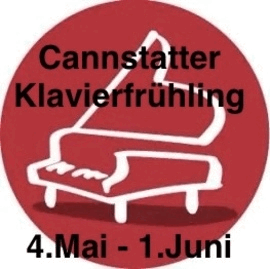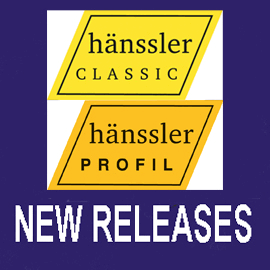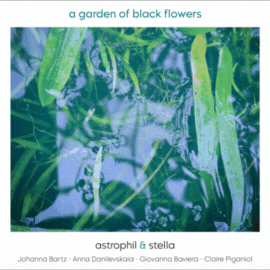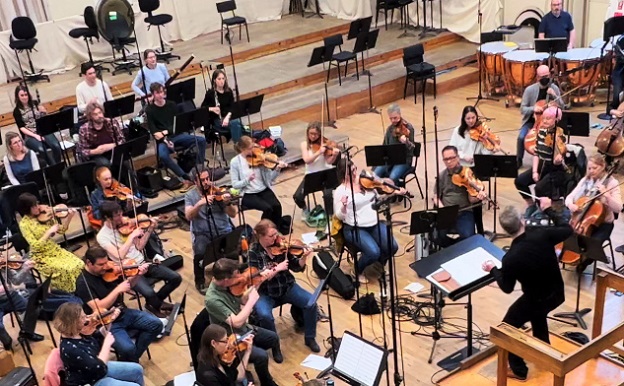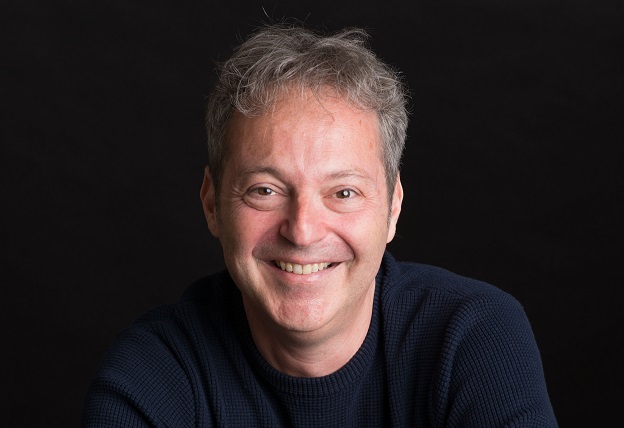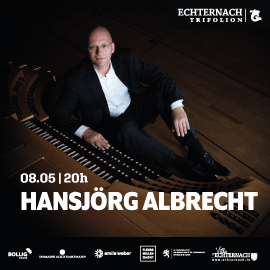You were born in Tel Aviv, you grew up in Paris, and you live now in London. Does this make you a multicultural composer with a lot of roots?
I suppose so, especially if you add to that that during World War II my mother was born in Lviv (currently in Ukraine, but then Poland) and my father was born in Russia as his family were escaping the Nazi invasion of Poland. However, I think that I would make a slight distinction between the composer and the man.
I think that the artist chooses his artistic culture. In my case it is mostly the German music tradition (Bach, Mozart, Beethoven, Brahms etc.) even if I sense that maybe my growing up in France with its rich culture influenced me too. I have now lived in London for over 30 years and am sure that unconsciously that must influence me as well.
At the same time, you seem to spend part of your time conducting. How important is this part of your activities and does it reduce your composer activities?
Conducting does not reduce my activity as a composer in any way and is important to me for at least three reasons. First of all, I think that whilst a composer is alive he can contribute to the understanding of his music; it is what we define as performance tradition when we talk of the past. For example, sometimes we say that such and such a musician studied with someone who learned from a teacher who was taught by a pupil of Brahms. For my piano music or chamber music I spend a lot of time working with the performers on my music but for my orchestral music the only way to do the same is to conduct it myself. Of course I am delighted that other conductors love my music and want to perform it! But many told me that it was very helpful to them to see how I conducted my own work.
The second reason is what I would call the baptism by fire. I think that the only real test for my music is to perform it alongside great masterpieces of the past and see if it can stand beside them. For example, this March 9th I will be conducting the English Chamber Orchestra for a world premiere of my new song cycle for soprano and orchestra, Shakespeare Songs opus 101, and in the same concert I will be conducting, amongst other things, Elgar’s wonderful Serenade for Strings and Vaughan Williams’s The Lark Ascending.
The third reason is somewhat more self-centered. When I finish writing a long piece that takes me several months, the initial exhilaration is quickly followed by a feeling of emptiness. It would be difficult to start a new composition immediately after this experience. However, if I then have the opportunity to conduct a few concerts I can live my love of music as passionately but in a different way. By conducting the works of other composers – or even my own – I can express myself without having to invent. I also really like the direct contact with the audience!
You are composing for solo instrument, concertos, ballet music, vocal music and chamber music. Is there any genre that you prefer?
Naturally, I am attracted to all genres. Intellectually, I admire the polymaths of the Renaissance – people like Leonardo da Vinci – who tried to excel in many fields. In music, the equivalent figure for me would be Mozart since he was equally at home with concertos and symphonies, pieces for solo piano and for opera. It could be the case that I find this appealing because that variety and contrasts are the most important parts of art. I like to create contrast within my compositions but also between my compositions. Writing a piece for piano followed by a full symphony is my ideal setup as it keeps me inspired.
Do you have any mentor who influenced your composing?
Besides the great composers of the past, perhaps unusually, the biggest influence upon me was not a musician but an artist – in this case, my own father. Across the arts – whether that’s literature, painting or music – the creator begins with a blank canvas or void and the challenges that he faces are similar. So are his artistic moral duties. I’ve learned thousands of things from my father, but if I had to choose one, it would be a dislike of academism and a need to be both honest and different.
Your music is definitely not to be considered as avant-garde, a genre that some believe is the only contemporary music. What is your credo?
I beg to differ. I think that my music is the most avant-garde that can be. To be avant-garde is to be original, to write like no one else. This was important to me even as a child. As I indicated previously, my father instilled in me a need to be different as an artist. Throughout history, academic music has been what is taught in academies. If you were to go to the Juilliard School, the Royal Academy of Music or the Paris Conservatoire, you would witness a similar way of composing in all these places all over the world. This cannot be avant-garde, since everyone else is doing it. People tell me that my music is immediately recognizable and distinct.
We need to go back to basics. We need to go back to what it means to be avant-garde. When I was eight years old, I composed in a personal twelve-tone idiom which was my way of being as novel as I could back then. These days, even if it’s not atonal anymore, I think that my music is a lot more modern because I have found my own style defined by – amongst other things – very complex and expressive rhythms and polyrhythms. Many people think that avant-garde music is atonal. For my part, I do not believe that the important binary is between the tonal and the atonal. In my eyes, the more significant binary is that between music that is purely decorative – solely concerned with effects – and music that is full of magical melodies, complex counterpoint and somehow tells a story without words. So my credo is: be really new.
How do you see the current contemporary music scene?
I like the pluralism of the contemporary music scene. I like that it’s less dogmatic and more imaginative than, say, thirty years ago.
What is your primary message? What do you want to express with your music?
For me Beauty has always been the ultimate goal. I want to create a beauty that didn’t exist before but, once created, seemed as though it had always existed. Playing or writing music evokes in me the strongest of human emotions, so I do not feel that I have to try to express myself but rather to direct and distil my ideas.
What would you say is your personality as a composer?
The maniacal-depressive, capable of total beauty and total despair – often in close proximity to one another!
What does initiate your music?
I have no idea. I have been composing for almost fifty years and the blank page is still the same mystery.
When do you compose? Are there moments of inspiration or do you just take the time to do it?
I am much disciplined and I try to compose whenever I can, even if I’m tired. A Spartan would be proud of me.
How do you compose? At the computer? At the piano?
I compose in my head and then type it up on the computer. I don’t compose at the piano because I want my inspiration to be abstract. Muscle memory is the enemy of imagination!
Among your own works, do you have any favorite?
Generally I do not have favorites but I tend to be most excited about whatever I have just finished.
Sunday, 9th March, 2025
Cadogan Hall, 5 Sloane Terrace, London (UK)
Nimrod Borenstein conductor
Sarah Fox soprano
The English Chamber Orchestra
Programme includes:
Nimrod Borenstein: Shakespeare Songs op. 101 (world premiere)
Vaughan Williams: The Lark Ascending
Elgar: Serenade for Strings
Elgar: Chanson de Matin
and more to be announced
Cadogan Hall Box office: https://cadoganhall.com/whats-on/english-chamber-orchestra-the-lark-ascending/Here is a link to a Pizzicato review:
https://www.pizzicato.lu/die-charmante-musik-von-nimrod-borenstein/




